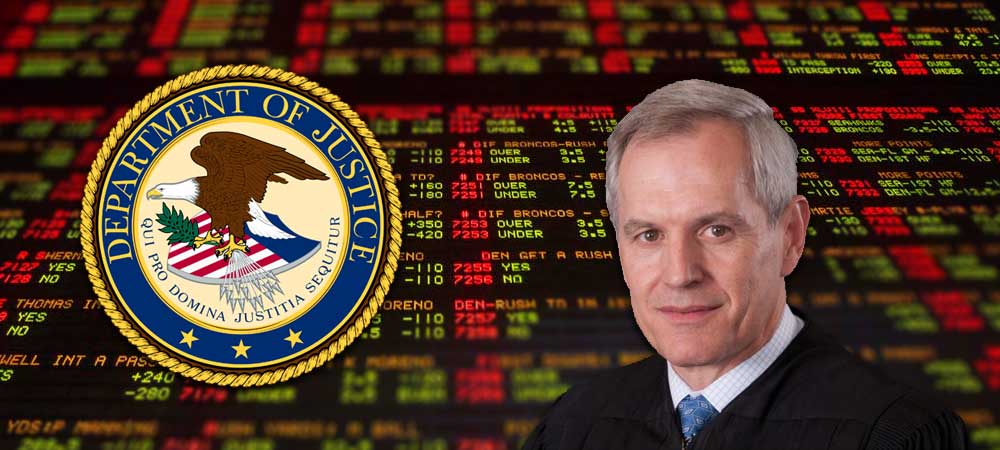- Judge Paul Barbadoro from the New Hampshire District Court reviewed the Wire Act this time around.
- Vastly different opinions derived from the Department of Justice in both 2011 and 2018.
- The DOJ has the opportunity to further the challenge, taking the Wire Act interpretation to the Supreme Court.
CONCORD, N.H. – After taking almost four months to come to a conclusion, US District Judge Paul Barbadoro has released his opinion on the Wire Act.
Instead of using the outlook from last year’s Department of Justice decision, Judge Barbadoro stated that the Wire Act “applies only to transmissions related to bets or wagers on a sporting event or contest.”
The decision comes after the NH state lottery filed a lawsuit against the DOJ, expecting to lose millions in online lottery sales, as the original opinion stated that all forms of online gambling were illegal under the Wire Act.
“Today’s ruling is a historic victory for the state of New Hampshire, and we are proud to have led this effort,” said Governor, Chris Sununu. “New Hampshire stood up, took action and won – all to protect public education in our state.”
The sports betting laws across the nation will remain unchanged; however, this removes any potential hurdle that would have affected online sports betting. As for the states with online lottery sales, they are back to business as usual, allowing players to purchase state and national games directly from their phone.
The Changing Viewpoint Of The Wire Act
The Wire Act was put in place in 1961 with the mindset that it would remove the underground sportsbooks from operating successfully. In a time when the mafia ruled sports betting services, the ban of interstate communication in regards to sports betting was the easiest way to combat these unlicensed operators.
In 2011, New York wanted to start the trend of online lottery sales but wanted to confirm with the DOJ that it did not break any stipulations of the Wire Act. The DOJ ended up giving the responsibility to the Office of Legal Counsel, who determined only sporting events were addressed in the Wire Act, according to attorney Virginia Seitz.
This gave New York the ability to offer lottery tickets through an online platform; however, this was short lived as Seitz stepped down from the DOJ a few years later.
After PASPA was repealed in 2018, the OLC reviewed their office’s opinion on that interpretation, this time by Assistant AG, Steven Engel.
When Engel looked into it, he stated that all forms of gambling were meant to be included in the Wire Act. Many states were already involved with the online sales of lottery tickets and could easily lose out on millions of dollars in taxable revenue with the introduction of legal sports betting.
“They flipped and said it wasn’t OK, and everyone had 90 days to comply,” said the NH Lottery Executive Director, Charlie McIntyre.
McIntyre and other lottery officials are back to having successful operations but the situation isn’t entirely cut and dry.
There is a high likelihood that the DOJ appeals this ruling and the law gets reviewed further but at the Supreme Court level.
“They have a right to appeal,” said McIntyre. “They have to file that within a month and if they do. It goes on. But certainly, we’re business as usual.”
Advertising Disclosure
In order to provide you with the best independent sports betting news and content LegalSportsBetting.com may receive a commission from partners when you make a purchase through a link on our site.
News tags: Charlie McIntyre | DOJ | Governor Chris Sununu | Judge Paul Barbadoro | NH Lottery | Virginia Seitz | Wire Act

After spending time scouting college basketball for Florida State University under Leonard Hamilton and the University of Alabama under Anthony Grant, Michael started writing focused on NBA content. A graduate of both schools, he now covers legal sports betting bills, sports betting revenue data, tennis betting odds, and sportsbook reviews. Michael likes to play basketball, hike, and kayak when not glued to the TV watching midlevel tennis matches.


 College Football Betting
College Football Betting Best Online Sports Betting
Best Online Sports Betting Best Legal NFL Betting
Best Legal NFL Betting States With Legal Sports Betting
States With Legal Sports Betting Sports Betting Events
Sports Betting Events




